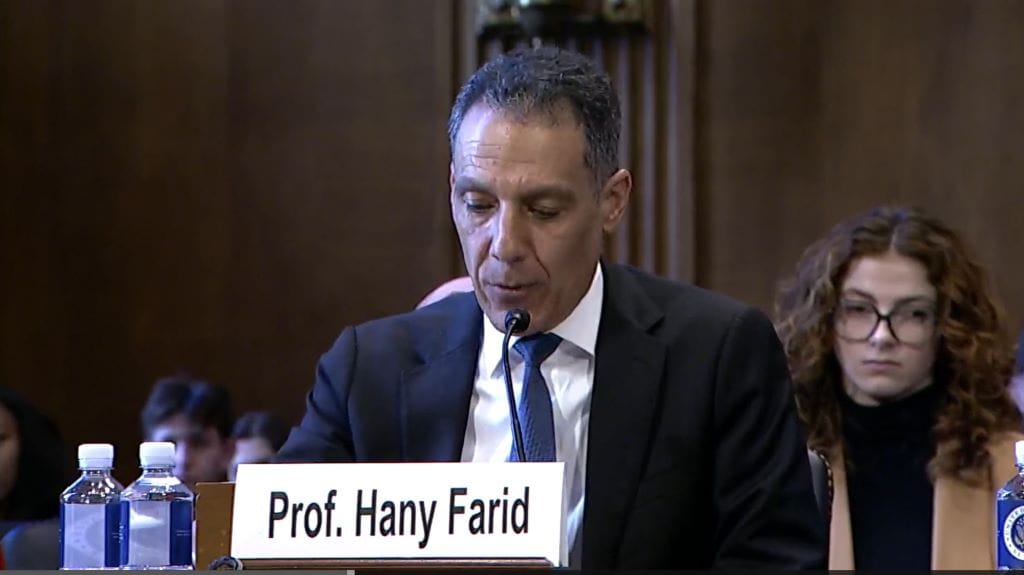Congress Should Amend Section 230, Senate Subcommittee Hears
Experts urged Congress to amend tech protection law to limit protection for the promotion of harmful information.
Teralyn Whipple

WASHINGTON, March 8, 2023 – Law professionals at a Senate Subcommittee on Privacy, Technology and the Law hearing on Wednesday urged Congress to amend Section 230 to specify that it applies only to free speech, rather than the promotion of misinformation.
Section 230 protects platforms from being treated as a publisher or speaker of information originating from a third party, thus shielding it from liability for the posts of the latter. Mary Anne Franks, professor of law at the University of Miami School of Law, argued that there is a difference between protecting free speech and protecting information and the harmful dissemination of that information.
Hany Farid, professor at University of California, Berkley, argued that there should be a distinction between a negligently designed product feature and a core component to the platform’s business. For example, YouTube’s video recommendations is a product feature rather than an essential function as it is designed solely to maximize advertising revenue by keeping users on the platform, he said.
YouTube claims that the algorithm to recommend videos is unable to distinguish between two different videos. This, argued Farid, should be considered a negligently designed feature as YouTube knew or should have reasonably known that the feature could lead to harm.
Section 230, said Farid, was written to immunize tech companies from defamation litigation, not to immunize tech companies from any wrongdoing, including negligible design of its features.
“At a minimum,” said Franks, returning the statue to its original intention “would require amending the statute to make clear that the law’s protections only apply to speech and to make clear that platforms that knowingly promote harmful content are ineligible for immunity.”
In an State of the Net conference earlier this month, Frank emphasized the “good Samaritan” aspect of the law, claiming that it is supposed to “provide incentives at platforms to actually do the right thing.” Instead, the law does not incentivize platforms to moderate its content, she argued.
Jennifer Bennett of national litigation boutique Gupta Wessler suggested that Congress uphold what is known as the Henderson framework, which would hold a company liable if it materially contributes to what makes content unlawful, including the recommendation and dissemination of the content.
Unfortunately, lamented Eric Schnapper, professor of law at University of Washington School of Law, Section 230 has barred the right of Americans to get redress if they’ve been harmed by big tech. “Absolute immunity breeds absolute irresponsibility,” he said.
Senator Richard Blumenthal, R-Connecticut, warned tech companies that “reform is coming” at the onset of the hearing.
This comes weeks after the Supreme Court decision to provide immunity to Google for recommending terrorist videos on its video platform YouTube. The case saw industry dissention on whether section 230 protects algorithmic recommendations. Justice Brett Kavanaugh claimed that YouTube forfeited its protection by using recommendation algorithms but was overturned in the court ruling.








